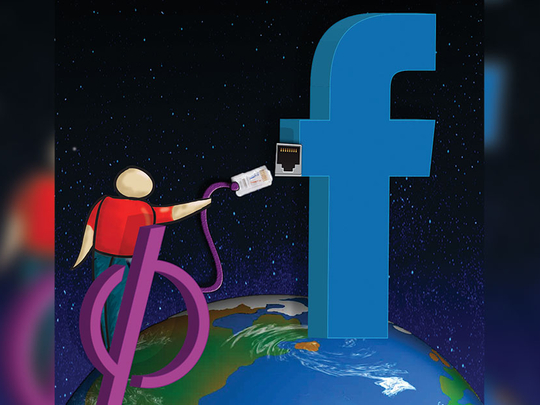
Facebook is celebrating the one-year anniversary of the launch of Internet.org, its much-hyped initiative to bring internet access to the world’s unconnected population.
So how has Internet.org stacked up against expectations since its initial debut in Zambia in summer 2014?
* Providing the world with free internet connectivity: By conventional benchmarks, Internet.org seems to be performing well. After all, more than nine million people have ventured online as a result of accessing Facebook’s Internet.org mobile app.
And the initiative has taken off from its initial launch in Zambia to include a dozen mobile operators and 17 partner countries spread across three continents: Asia, Latin America and Africa.
But there have been hiccups along the way — most notably in India, where the very concept of using the Internet.org app as the way Indians access the internet has raised troubling questions about Facebook’s role. Is the company a gateway or a gatekeeper?
Facebook claims it’s a gateway, but there’s something that rubs people the wrong way when they are told which sites are free, and which are not, and how they must access them.
And remember Facebook’s early pledges that it would bring the internet to more than five billion people? Well, nine million people is a good start in year one, but we’re talking about an entire order of magnitude here to reach 90 million, and then another order of magnitude to reach 900 million users.
There’s a big difference between saying that Internet.org is “available to more than a billion people,” and then actually having a billion people use it.
That’s one reason why Facebook is taking the one-year anniversary as a way to announce the next big stage — the roll-out to more partners, to more developers and to more users. Signing up to become a partner will become easier, and that might jump-start growth across crucial regions.
Facebook announced that it has made it easier for any operator to sign up for the Internet.org app in new countries through a new partner portal. This should make it easier to roll out free basic services and accelerate the rate of connectivity in new countries.
* Developing a proven business model: According to data released by Facebook, the moneymaking potential of Internet.org for all these partners and developers seems to be based on reality rather than just hype.
Of those nine million people who got on the internet, nearly half have signed up for some version of paid service. In fact, more than half of the people who come online through Internet.org are paying for data and accessing the internet within the first 30 days.
But here’s the tricky part — the more that Internet.org is just seen as a way to monetise the world’s poorest populations, the more risk there is of running into the backlash as Facebook did in India. It’s cool if the world’s most innovative countries are bringing internet access with them, but not so cool if it’s all just a way to make money and get people signing up for new services that have been hand-selected for them.
This has the potential to sound a bit crass if said the wrong way — but 50 per cent of Internet.org users are essentially being “upsold” into paid internet.
* Discovering innovative uses for Internet.org: What’s interesting is how people are using Internet.org. It’s this last aspect that has probably gotten the least attention.
After all, connecting people to the internet and having them sign up for data plans is not the most glamorous line of business.
However, consider the example of health care. According to proprietary data released by Internet.org, health has been one of the big success stories. Internet.org users accessed health services more than a million times just in June.
This means that if the plan for bringing on board more developers takes off, it could result in new health apps and new mobile wellness options, especially for the world’s rural populations.
That would help to silence critics who see plans to wire the earth with internet as unfocused on the planet’s real problems such as finding a cure for malaria.
It will be interesting to see how Internet.org progresses from here. The signs are hopeful — Facebook chief executive Mark Zuckerberg has outlined a vision in which drones, satellites and even lasers might be used to zap internet access to anywhere on Earth’s surface as part of the goal of bringing Internet.org to any location on earth: “The idea is that in the future, we’ll be able to beam down Internet access from a plane flying overhead or a satellite flying way overhead — and they’ll communicate down to earth using very accurate lasers to transfer data,” he said.
That’s a big idea, and it might just help Facebook regain its Internet.org mojo. Remember when just talking about The ‘Next Five Billion’ could get you high-profile media coverage?
In dealing with very third-world problems, let’s hope Facebook doesn’t get bogged down in first-world concerns like return on investment and conversion rates.
After all, as Zuckerberg once noted, internet connectivity should be thought of as a human right and not just a privilege for the Western world.












